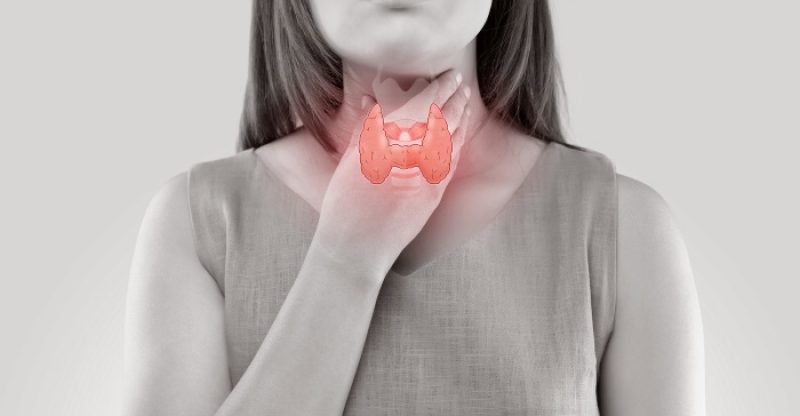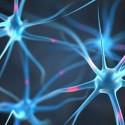Hypothyroidism Diet, Causes and Natural Treatments
Have you noticed a change in your appetite, energy, mood, or weight?
Are your hair, skin, and nails looking differently, these days?
You could be among the millions of Americans who have a thyroid disorder.
Having underactive or overactive thyroid results in many different symptoms, and hypothyroidism, or when your thyroid is not producing enough hormones, can cause all of these (1).
Keep reading to learn more about what hypothyroidism is, what causes this disorder, and how you can treat this naturally through changes in your diet and other natural remedies.
Having an underactive thyroid is actually easier to treat than hyperthyroidism, which is when your thyroid produces too many hormones; our natural remedies and dietary changes can help you start feeling and looking like yourself again soon.
First, though, let’s examine what exactly hypothyroidism is, and what causes this hormone disorder.
Understanding Hypothyroidism
What exactly is your thyroid, and what does it do?
The thyroid gland is one of several in your endocrine system.
It is located in the front of your neck, and it produces and stores hormones that play an important role in nearly all of your body’s systems and functions.
Triiodothyronine, or T3, is the name of the thyroid hormone, and it regulates your metabolic rate, most importantly.
It is also somewhat responsible for energy levels and body weight changes.
Not only does T3 target the metabolic function of every cell in your body, but it also plays essential roles in your heart and skeleton.
If your thyroid gland is not producing or releasing enough thyroid hormones, you have hypothyroidism.
The T3 hormone produced by your thyroid targets receptors in all parts of your body, so when you are not releasing enough of this vital hormone, you will notice health changes, sometimes significant ones.
While only a small percentage of people are diagnosed with hypothyroidism – less than 1 percent, many more have some level of underactive thyroid.
Women are more susceptible to hypothyroidism, and as you age, your risk increases.
Other risk factors for hypothyroidism include having Type 1 diabetes, Celiac disease, and autoimmune disorders such as rheumatoid arthritis (2).
While hypothyroidism is one type of thyroid disorder, there are others, including hyperthyroidism, thyroiditis, and goiters.
What is Hyperthyroidism?
If your thyroid gland produces too much T3, you have hyperthyroidism.
Grave’s disease, nodules on your thyroid, and having a swollen thyroid are among the causes of hyperthyroidism.
If you do not treat this disorder, hyperthyroidism can lead to a loss in bone density or an irregular heartbeat, which increases your risk of a stroke.
The most common symptoms of hyperthyroidism include:
- Unexplained weight loss
- Anxiety or nervousness
- Thinning hair or hair loss
- A racing heartbeat
- Excess sweating
- Itchy skin that is also flushed
- More frequent bowel movements
Your doctor may prescribe medications to limit your thyroid activity, and surgery may also be necessary to remove a part of the entire thyroid gland, although this is a last-resort treatment.
There are natural treatments that can reduce the activity of your thyroid, as well, so talk with your doctor about alternative therapies for hyperthyroidism.
What is Hypothyroidism?
The thyroid is often referred to as one of the master glands.
Not only does it produce an essential hormone that your body needs, but it also helps regulate how your body turns food into usable energy that supports your body’s function.
When your metabolism is not properly controlled by your thyroid, your ability to burn calories, as well as your energy level, will suffer.
Your thyroid hormones also assist your liver in the breaking down of cholesterol, as well as stimulate the production of enzymes that control triglyceride levels in your bloodstream.
Changes in your thyroid function can, therefore, result in heart problems, which can be severe.
When your thyroid is underactive, you have the opposite problem as in hyperthyroidism.
Hypothyroidism results in different symptoms than its overactive counterpart.
The most common symptoms of hypothyroidism include (3):
- Fatigue, which can be severe
- Mood disorders such as depression
- Unexplained weight gain
- Loss of hair
- Constipation
- Puffiness in the face
- Difficulty tolerating cold temperatures
- Dry, cracking skin
- Changes in the menstrual cycle, including heavy or irregular periods
- A goiter, which is an enlargement of your thyroid
Having a thyroid that is underactive can also leave you feeling moody or sluggish.
Because your mood is sensitive to changes in your hormones, those with hypothyroidism are more likely to struggle with anxiety, depression, difficulty sleeping, and other mental health problems.
This occurs because your thyroid regulates the neurotransmitters in your body, which control all the nerve signals your brain sends.
When these are off-kilter, so is your mood.
So, how do you know if you are experiencing hypothyroidism?
If you have any of the above symptoms, are having trouble with infertility, or are getting sick with colds or the flu more frequently, talk with your doctor about testing your thyroid.
A blood test can check your hormone levels, including your thyroid-stimulating hormone, or TSH.
If your TSH is high, you have hypothyroidism.
The early stages of this disorder are referred to as mild hypothyroidism, and if you make the necessary changes to your diet and lifestyle, mild conditions can be reversed.
If you do not treat mild hypothyroidism, you may develop severe autoimmune reactions.
These can lead to problems such as obesity, heart complications, joint pain, impaired cognitive function, infertility, and problems during pregnancy.
If your thyroid is extremely underactive and barely functioning, you can even fall into a myxedema coma.
These are extremely rare, and generally, afflict women and the elderly.
Common characteristics of this disorder include hypothermia, declining cognitive status, and the slowing of essential bodily functions.
Anyone with severe thyroid problems who seems to be in a stupor or has severe lethargy should seek immediate medical attention.
This type of coma can be fatal if left untreated.
Thyroid nodules are another symptom of an underactive thyroid.
This buildup of cells on your thyroid creates a lump, and while most are not dangerous, they can lead to cancer if not monitored closely.
The most common causes of an underactive thyroid include Hashimoto’s disease, thyroiditis, not eating enough iodine (rare in Western countries), exposure to radiation, and some medications.
If you have a previous thyroid disease, have had part of your thyroid removed, or have undergone radiation treatment on your thyroid, you may experience hypothyroidism.
While there is no cure for hyperthyroidism, there are treatments that can help your thyroid naturally produce the T3 hormones your body needs.
Causes of Hypothyroidism
Hashimoto’s Disease
In developed countries, the leading cause of hypothyroidism is Hashimoto’s disease, also known as Hashimoto’s thyroiditis.
This is an autoimmune disorder of the endocrine system in which the immune system begins to develop antibodies that attempt to destroy the thyroid gland.
For as yet unknown reasons, Hashimoto’s essentially tricks the immune system into believing that your thyroid cells are actually foreign invaders, like microbes.
This triggers reactions that are meant to rid your body of the offending cells, which can cause damage to your thyroid, and many of the symptoms we have discussed (4).
This results in an inflamed thyroid, as well as inflammation in many other parts of your body.
While Hashimoto’s disease causes the vast majority of cases of hypothyroidism, other factors can make your thyroid underactive.
Inflammation in Your Gut
When your gut is not fully healthy or functioning, this can lower your immunity, as well as contribute to your inability to absorb nutrients.
Your gut can become inflamed due to many factors, including food sensitivities or allergies.
The most common reactions are to dairy and gluten, both of which are frequent triggers of inflammation in the gut.
Diets high in processed foods, preservatives, and refined sugars also increase inflammation in the gut.
Once the autoimmune responses are triggered, your thyroid can become a target of this reaction.
Your Diet
The foods you eat provide you with many essential nutrients, especially minerals, that you cannot otherwise produce on your own.
When your diet is lacking in certain nutrients, like selenium and iodine, your thyroid cannot function properly (5).
Iodine and selenium are necessary for efficient thyroid function, and if your diet is lacking in sources of these minerals, your thyroid will slow production of its crucial hormones.
Selenium is also necessary for the control of inflammation throughout the body, so getting adequate amounts from your diet is vital.
In many other parts of the world, a lack of iodine can cause significant thyroid problems, including the development of goiters.
In developed nations, like the US, most people use iodized salt for at least some of their seasoning needs, which provides you with a steady supply of this essential mineral.
Pregnancy
Some women experience what is known as postpartum thyroiditis, following pregnancy.
During pregnancy, some women’s thyroids may become overactive, then rapidly decline in hormone production after giving birth.
This condition often resolves itself within a year of childbirth but may lead to permanent hypothyroidism.
High Levels of Stress
When you are under a lot of stress or are chronically stressed, you release hormones that can trigger an inflammatory response in your body.
Raised levels of cortisol and adrenaline, both of which are released in response to stress, disrupt the crucial functioning of neurotransmitters, which then leads to worsening symptoms from your thyroid (6).
Being Sedentary
Being active and eating a healthy diet can help you better manage stress and regulate your hormones, which can keep your thyroid function in check.
Those who exercise regularly are able to sleep better, as well as cope with stress more effectively and maintain a healthy weight.
All of these factors contribute to your thyroid’s proper functioning.
Other Causes
Certain medications can lead to an underactive thyroid, especially those used to treat heart problems, cancer, and certain psychiatric disorders.
Your pituitary gland plays an important role in your thyroid’s health.
Your pituitary makes TSH, your thyroid-stimulating hormone, which controls the hormones your thyroid produces (7).
If your pituitary is not functioning correctly, then, this can directly affect your thyroid function.
In rare cases, you can be born with hypothyroidism.
Congenital hypothyroidism affects one in every 4,000 newborns, so it is not very common, but this lifelong thyroid disorder will need treatment (8).
Conventional Treatment for Hypothyroidism
Before treating an underactive thyroid, it is important to understand your current level of function.
Your doctor can order blood tests that can measure the levels of various thyroid hormones, which can help you determine together your best treatment options.
Depending on the severity of your condition, you may be referred to an endocrinologist to manage your care.
The most common conventional treatment for hypothyroidism is thyroid hormone replacement therapy.
Most people take levothyroxine, which is a synthetic version of T4.
Occasionally, doctors may prescribe synthetic T3 with the T4, or by itself, depending on your current thyroid output.
There are also thyroid hormone replacements that are made from animal thyroid hormones (9).
Once you have been diagnosed and start replacement therapy, chances are high that you will take this medication for the rest of your life.
Your dosage may need to be altered over time, though, and your doctor will want to monitor your levels consistently.
Foods to Improve your Hypothyroidism
In order to treat hypothyroidism naturally, you must eliminate the cause or causes of your thyroid dysfunction.
This includes addressing sources of inflammation, looking at all your medications, addressing nutrient deficiencies in your diet, and regulating the other hormones in your body.
A diet meant to address hypothyroidism eliminates the foods that are likely to cause inflammation, promotes better GI tract health, balances your hormones, and reduces other symptoms that could be contributing to your thyroid disorder.
The following foods are recommended as a part of a healthy, whole-foods diet that is high in plants and healthy fats.
- Fruits and vegetables are excellent, natural sources of the antioxidants, minerals, and vitamins your body needs to perform all its essential functions.
- Wild-caught salmon and other fish rich in omega-3 fatty acids help regulate your hormones. When your diet is high in omega-6 but low in omega-3 fatty acids, your body responds with inflammation. Improving your omega-6 to omega-3 ratio can better support your thyroid function. Other fatty fish that are good sources of omega-3s include sardines and Atlantic mackerel.
- Sea vegetables and seaweed are excellent sources of iodine, which can help prevent deficiencies that lead to hypothyroidism. Wakame, nori, kelp, and kombu are all sea vegetables that can be added to your diet in many ways.
- Coconut oil is another healthy fat that lowers inflammation while also providing you with energy. The fatty acids in coconut oil help regulate your metabolism, are easy to digest, and can boost your immune system with microbe-fighting properties. There are many benefits to eating coconut oil, including supporting your thyroid’s function.
- Getting healthy omega-3 fatty acids from plant sources like sprouted seeds is also excellent for your thyroid health. Chia, hemp, and flaxseeds contain ALA, which are omega-3 fatty acids that support your hormone balance. These healthy fats also elevate your mood and support brain function, while lowering inflammation.
- Foods rich in probiotics are also important for supporting your immune system and gut health. Fermented and cultured foods are the best sources, including yogurt, kefir, sauerkraut, kombucha, and kimchi. The probiotics in these foods will help restore the natural balance of microflora in your gut, allowing you better to absorb nutrients from your food, calming inflammation, and reducing other problems related to thyroid dysfunction.
- Eating high-fiber foods is also important for your digestive health. Eating a high-fiber diet will keep you regular, help you regulate your blood sugar, support weight loss efforts, and help take care of your heart, as well.
- Eat healthy, lean sources of protein. Protein is a transporter for thyroid hormones to your body’s tissues, so eating moderate portions of protein with each meal can help regulate the transmission process from your thyroid. There are many healthy, plant-based sources of protein, including nuts, seeds, nut kinds of butter, quinoa, legumes, and animal products that are grass/pasture fed and antibiotic free.
- If you have Hashimoto’s thyroiditis, you should be strengthening your immune system. Antioxidants like glutathione can boost your immunity and help you fend off the inflammation caused by Hashimoto’s. While it is difficult to eat enough foods that contain glutathione, your body actually produces this antioxidant on its own. Asparagus, spinach, garlic, grapefruit, avocado, peaches, broccoli, and squash all help your body produce glutathione naturally, so incorporate these foods into your diet regularly.
Foods to Avoid for Hypothyroidism
If you have hypothyroidism, there are some foods you should avoid entirely.
- Gluten is the most significant food allergen that can cause thyroid problems. A high percentage of those with hypothyroidism also have a sensitivity to gluten or have Celiac disease. Avoid eating any products made from wheat, barley, or rye to eliminate gluten from your diet. Gluten finds its way into many prepared and packaged foods, so be sure to read labels carefully when purchasing ready-made meals, or processed ingredients. The inflammation caused by gluten sensitivity can create nutrient deficiencies as well as hormone imbalances.
- Dairy is also a common allergen that triggers inflammation in the body. Avoiding conventional dairy products can help, as can only consuming products made from raw dairy. Some will find it best to avoid dairy products altogether, though, if your reaction is severe.
- If you have thyroid problems, you should not eat raw cruciferous vegetables like Brussels sprouts, broccoli, cauliflower, kale, or cabbage. In raw form, these vegetables have a compound that impairs your thyroid’s ability to function, so steam your veggies for 30 minutes to avoid problems. These vegetables pose a risk mostly to those with an iodine deficiency (9).
- Refined sugar disrupts the hormonal balance needed for proper metabolism. Eating sugar when you have a thyroid disorder magnifies its effects, which can include changes in mood, fatigue, hormonal imbalances, depression, and weight gain.
- Refined flour products have a significant impact on your hormone levels, and can lead to weight gain. Anything that contains wheat flour, such as baked goods, pasta, cereal, or bread, should be eliminated or severely restricted in your thyroid-boosting diet. Opt for whole-grain products whenever possible, and avoid enriched wheat flour altogether.
Natural Treatments for Hypothyroidism
Now that you have changed your diet to support your thyroid’s healthy functioning, let’s examine the other natural remedies that have been successful in reducing the symptoms of hypothyroidism, or in eliminating the disorder altogether.
Ashwagandha
Ashwagandha is quickly gaining popularity for its adaptogenic properties.
Adaptogens help to lower cortisol and balance your thyroid hormone levels.
Taking 500 milligrams a day of supplemental Ashwagandha can increase your natural production of thyroxine.
Other adaptogenic herbs that can be helpful include licorice root, Rhodiola, holy basil, and ginseng.
Iodine
For some with hypothyroidism, taking even a small dose of 250 milligrams of supplementary iodine every day can increase your thyroid gland functioning, especially in those predisposed to thyroid dysfunction (10).
You can also get iodine naturally through your diet, so eat lots of the foods described earlier, as well.
It is hard to get too much iodine from your daily food, but those taking supplements or eating large quantities of sea vegetables can exceed the RDA.
If you have Hashimoto’s thyroiditis, you should not take iodine supplements.
If you do, you run the risk of developing an overactive thyroid over time.
Selenium
Your thyroid uses more selenium than any other organ in your body.
The thyroid requires selenium to produce T3, plus it helps the thyroid reduce any inflammation.
Selenium supplements of 200 milligrams per day are especially helpful for those with Hashimoto’s disease and women who are pregnant.
Selenium is able to help lower the antibodies fighting your thyroid (11).
Selenium also lowers the risk of developing postpartum thyroiditis for pregnant women, so if you are pregnant and have thyroid problems, talk with your doctor about selenium (12).
L-Tyrosine
Your body needs tyrosine, a non-essential amino acid, to produce thyroxine or T4 thyroid hormone.
You can get tyrosine from protein sources in your diet, and your body makes some of its own tyrosine, too.
Taking 500 milligrams of supplementary L-tyrosine twice a day can improve your quality and amount of sleep, which both lowers fatigue and enhances your mood.
L-tyrosine does this by promoting the production of norepinephrine, dopamine, and melatonin, which are sometimes called “feel good” hormones (13).
By lowering stress and inflammation, you are promoting a healthier thyroid.
Fish Oil
Your thyroid also relies on essential fatty acids to carry out its functions.
Omega-3 fatty acids, like those found in oily fish, can lower your risk for developing thyroid dysfunction and symptoms, including elevated cholesterol, depression, anxiety, arthritis, immune system problems, and inflammatory bowel diseases.
To keep your immune system and thyroid working well, consider taking one thousand milligrams per day of a high-quality fish oil supplement.
This will also work to better your omega-6 to omega-3 fatty acid ratio, which reduces inflammation, as well.
B Vitamins
B vitamins like B12 and thiamine are necessary for proper hormonal balance.
Thiamine can also help fight autoimmune disorders and symptoms, including reducing chronic fatigue symptoms.
Those with Hashimoto’s disease can benefit greatly from 600 milligrams per day of thiamine (14).
B12 is also necessary for fighting fatigue.
B12 plays a key role in your central nervous system, protecting your brain and neurons, but it also helps turn nutrients from your food into the usable energy your brain and body need.
Probiotics
If you do not eat enough foods that contain probiotics, you should consider taking supplementary probiotics with at least 50 billion colony forming units (CFUs) per serving.
These healthy bacteria can create a healthy gut, which increases nutrient absorption and also reduces inflammation.
Your digestive system plays an important role in fatigue, as well as your immune system, so maintaining a healthy gut is vital.
Vitamin D
Getting sufficient vitamin D can be difficult if you work indoors, live in a region that receives less sun or don’t spend time outside.
Getting enough sunlight helps your body create the vitamin D your immune system and other body functions need to work.
Those with Hashimoto’s will benefit from short periods in direct sunlight, as many autoimmune disorders are linked to a deficiency in vitamin D.
Even just going for a walk around the block, sitting in the sun for 10 minutes, or doing yoga in your yard can help raise your vitamin D levels significantly.
Relax
Lowering your stress is another good way to support your thyroid.
Reducing the levels of cortisol and other stress hormones helps your thyroid work more efficiently.
Controlling and managing your stress, as well as finding ways to unwind regularly after a stressful day, can assist in keeping all your hormones in check.
Some techniques that can help you unwind include meditation, yoga, breathing techniques, and relaxation therapy.
Find a stress reducer that works for you, though, and support your thyroid by using it regularly.
Apple Cider Vinegar
Drinking two tablespoons a day of apple cider vinegar can restore your body to a more balanced pH, which will help you better regulate your hormones.
Apple cider vinegar can also boost a sluggish metabolism from an underactive thyroid.
Essential Oils
Essential oils can help reduce some symptoms associated with thyroid disorders.
Try these combinations.
- A mixture of three parts frankincense oil, five parts lemongrass oil, and five parts clove oil can be rubbed directly onto the neck where your thyroid is located.
- Dab two drops of frankincense oil on your finger, then rub into the roof of your mouth two times per day.
- Combine equal parts lemongrass oil and myrrh. Rub this into your neck near your thyroid, onto the bottom of your big toes, and into your wrists several times per day.
- If your joints or muscles are sore due to hypothyroidism, add lemongrass, myrrh, clove, and geranium oils to your bath water, then soak.
- Lemon, grapefruit, and peppermint oils are great to use for aromatherapy to combat fatigue.
- Lavender, frankincense, and chamomile oils are also good for lowering anxiety and enhancing mood.
When Should I See a Doctor?
Diagnosis of a thyroid problem of any kind should happen by your physician.
You should be working in consultation with your physician to treat your under- or overactive thyroid using natural treatments so that he or she can monitor your health and thyroid levels consistently.
If you are having any symptoms of hypothyroidism or hyperthyroidism, you should see your family doctor soon.
Apparent symptoms that require immediate medical attention include swelling of your thyroid or a lump on your neck.
While this is most likely a benign condition, it could also be thyroid cancer, which you will need to be screened for right away.
If your eyes feel inflamed or are bulging, you should also see your doctor; this is a sign of Grave’s disease, which causes hyperthyroidism.
Other symptoms of a thyroid problem are more subtle, and you may confuse them with other medical issues.
If you have any persistent symptoms that could be explained by thyroid dysfunction, make an appointment to see your physician soon.
While most people with hypothyroidism can be monitored by their primary care doctor with no issues, others may need to see an endocrinologist to manage their care.
When you are first diagnosed with hypothyroidism, it is a good idea to see an endocrinologist to review your condition, help you understand your treatment plan, and answer any questions you may have about your condition.
If your symptoms persist or worsen once you have started treatment, you should see an endocrinologist, too.
If you have or develop a thyroid nodule or goiter, a specialist is the better choice to manage your care.
And if you have a problem with your pituitary gland, or are pregnant with hypothyroidism, seeing an endocrinologist is advised.
Conclusion
Hypothyroidism occurs when your thyroid gland is not producing or releasing enough hormones.
Your thyroid is a master gland, meaning it controls many major bodily functions, so when it does not work properly, you can experience symptoms or become very ill.
Symptoms of an underactive thyroid include unexplained weight gain, nervousness or anxiety, hair loss, fatigue, mood disorders, severely dry skin, a puffy face, and a goiter.
The most common cause of hypothyroidism is Hashimoto’s disease, which is an autoimmune disorder that causes the immune system to attack the thyroid.
Other causes of hypothyroidism include being sedentary, eating a poor diet, stress, gut inflammation, and pregnancy.
Many people live with an underactive thyroid and treat their disorder through diet, lifestyle, and other natural remedies.
Conventional treatments for hypothyroidism include thyroid hormone replacement, either using synthetic hormones or those derived from animals.
Changing your diet and activity level can improve your thyroid functioning, as well as reduce some of the symptoms of hypothyroidism.
Other natural remedies including taking supplements of nutrients like iodine, selenium, L-tyrosine, fish oil, probiotics, B vitamins, and vitamin D.
Using herbs like Ashwagandha can also help, as can essential oils, apple cider vinegar, and lowering your stress.
FDA Compliance
The information on this website has not been evaluated by the Food & Drug Administration or any other medical body. We do not aim to diagnose, treat, cure or prevent any illness or disease. Information is shared for educational purposes only. You must consult your doctor before acting on any content on this website, especially if you are pregnant, nursing, taking medication, or have a medical condition.
HOW WOULD YOU RATE THIS ARTICLE?







I’ve always thought I just can’t tolerate cold but maybe it’s a sing I need to see a specialist…
Thank you!
So, rapid weight gain can be caused by hypothyroidism? I thought I just was too stressed but now I see I need to visit my doctor.
I was diagnosed hypothyroidism soon after the delivery. Can I stick to this diet while I’m breastfeeding my daughter?